Keynotes
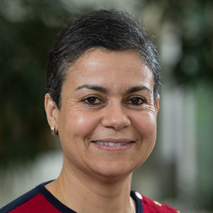 |
Renewable Energy and Energy Storage at Argonne National Lab By Dr. Kawtar Hafidi Associate Laboratory Director Physical Sciences and Engineering, Argonne National Laboratory, USA. |
 |
Integrated Energy Systems, Nano and Micro Grids and Smart Neighborhoods By Prof. Mohammad (Moe) A. Khaleel Ph.D., P.E. Associate Laboratory Director Energy and Environmental Sciences Oak Ridge National Laboratory, USA. |
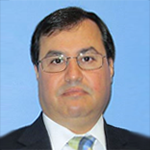 |
Battery Storage Systems for Mobility and Electrification at Oak Ridge National Laboratory (ORNL) Dr. Ilias Belharouak Oak Ridge National Laboratory (ORNL), Tennessee, USA. Editor of Journal of Power Sources (Elsevier). |
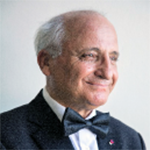 |
Artificial Intelligence Enabling the Future of Batteries By Prof. Rachid Yazami KVI PTE LTD, Singapore. |
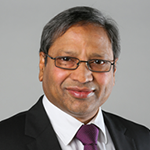 |
Stable perovskite solar cells by compositional and interface engineering by Prof. Mohammad Khaja Nazeeruddin Ecole Polytechnique Federale de Lausanne, Switzerland |
Workshop 1: Crystalline-Silicon Photovoltaics
Chair:
Dr. Ivan Gordon, Manager of Silicon Photovoltaics Group, IMEC, Belgium.
 |
Overview of main Silicon PV technologies and trends By Dr. Ivan Gordon Manager of Silicon Photovoltaics Group, IMEC, Belgium & Editor-in-Chief – Solar Energy Materials and Solar Cells – Elsevier Journal. |
 |
Development of electron and hole selective layers for dopant-free c-Si solar cells By Dr. Hisham Nasser Senior Research Scientist The Center for Solar Energy Research and Applications (GUNAM), METU, Ankara, Turkey |
 |
High performance semi-transparent Si-based carrier-selective passivating contacts for c-Si solar cells manufactured at different thermal budgets By Dr Olindo Isabella Delft University of Technology, The Netherlands. |
 |
Passivating contacts for silicon and perovskite solar cells By Prof. Stefaan De Wolf KAUST Solar Center, King Abdullah University of Science and Technology, Saudi Arabia. |
Workshop 2: Renewable energy and desalination sustainability
Chair:
Dr. Sarper Sarp, Swansea University, UK.
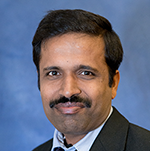 |
Membrane Distillation – A Sustainable and Renewable Energy Driven Water Reclamation Process By Dr. Lijo-Francis Qatar Environment and Energy Research Institute, Qatar. |
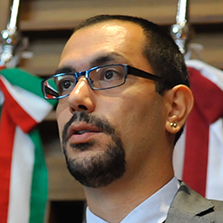 |
Salinity Gradient Processes: FO and PRO – Are They Really the Answers to Desalination and Sustainable Energy Production? By Dr. Sarper Sarp Swansea University, UK. Editor-in-Chief of Case Studies in Chemical and Environmental Engineering (Elsevier) Editorial Board Member of Desalination (Elsevier). |
 |
Surface Modified Membranes for Desalination by Membrane Distillation Technology By Prof. Mohamed Khayet Faculty of Physics, University Complutense of Madrid, Spain. Co-editor of the Journal “Desalination” (Elsevier) |
Workshop 3: Energy Efficiency in Building and Industry
Chairs:
Prof. Moncef Krarti, University of Colorado, USA.
Prof. Mohammed Garoum, EST, Mohammed V University, Morocco.
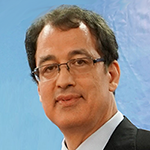 |
Towards Designing and retrofitting Sustainable and Intelligent Buildings Prof. Moncef Krarti University of Colorado, USA. |
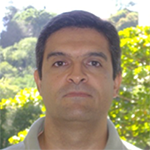 |
Inverse Heat Transfer Problems Prof. Helcio R. B. Orlande Escola Politécnica, Federal University of Rio de Janeiro, Brazil. |
Workshop 4: Next generation of Solar Devices
Chairs:
Prof. Mohammad Khaja Nazeeruddin, Ecole Polytechnique Federale de Lausanne, Switzerland.
Prof. Ahmed Ennaoui, Retired from HZB-Germany & Actually President of the Scientific Council of IRESEN.
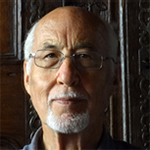 |
Water Splitting for Energy: The Challenge of Irreversibility and Self-Organization by Prof. Helmut Tributsch Retired from: Free University Berlin, Institute for physical and theoretical Chemistry, &Helmholtz Centre Berlin for Materials and Energy, Germany. |
 |
Photoelectrochemical tandem cells for highly efficient, unassisted solar fuels production By Prof. Thomas Hannappel Ilmenau University of Technology, Germany. |
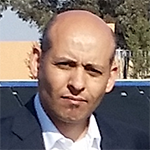 |
Nanomaterials for Energy Applications By Dr. Abdelhafed Taleb Sorbonne University, France. |
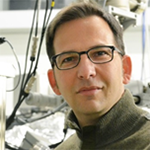 |
Surface and Interface Characterization by X-ray and Electron Spectroscopies – Insights into Chalcopyrite and Perovskite-based Thin Film Solar Cell Structures By Prof. Marcus Bär Helmholtz-Zentrum Berlin für Materialien und Energie, GmbH, Germany & Helmholtz-Institute Erlangen-Nürnberg for Renewable Energy (HI ERN), Berlin, Germany |
Workshop 5: Future Battery for e-Mobility & Stationary Storage Applications: Lithium-ion Technology and Beyond
Chairs
Dr. Khalil Amine, Argonne National Laboratory, IL, USA.
Prof. Ismael Saadoune, FST, Cadi Ayyad University, Marrakech, Morocco.
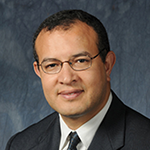 |
Advances in lithium ion battery and beyond toward mass electrification and grid scale storage Dr. Khalil Amine distinguished Fellow and manager of the Advanced Lithium Battery Technology program at Argonne National Laboratory, IL, USA. Winner of “Global Energy Prize” in 2019. |
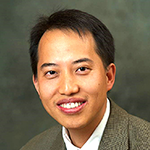 |
Next Generation Zinc Batteries for Wide Integration of Energy Storage By Prof. Zhongwei Chen Advanced Materials for Clean Energy, University of Waterloo, Canada |
 |
Cobalt Free Cathode Material of Li(Li0.16Ni0.19Fe0.18Mn0.46)O2 for Lithium-ion Batteries Prof. Xinping Qiu Tsinghua University, China. |
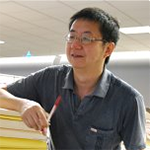 |
Taking a Closer Look at SEI Chemistry By Dr. Kang Xu U. S. Army Research Laboratory, USA. |
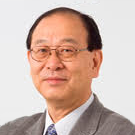 |
New and non distractive Diagnostic system to probe battery failure Prof. Tetsuya Osaka Institute for Research Organization for Nano & Life Innovation, Japan |
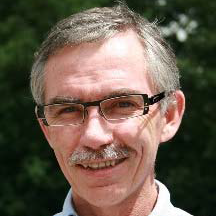 |
Recent advances in energy storage technologies for higher power and large scale applications Prof. Dominique Guyomard Institut des Materiaux Jean Rouxel at Nantes, France. |
 |
HQ Li-ion and Solid State Lithium Metal Batteries: from atoms to system Dr. Karim Zaghib General Director of the Center of Excellence in Transportation Electrification and Energy Storage, Canada. |
Special session 1: Biomass and Biogas Energy
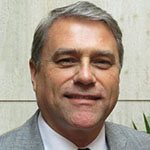 |
Policies for the 22nd century- climate, food, waste and energy Dr. David-Newman President of World Biogas Association, UK |
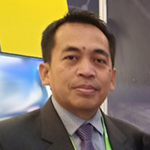 |
Microalgae-Microbial Fuel Cell (MMFC) for Bioelectricity Generation and Domestic Wastewater Treatments Prof. H. Hadiyanto Center of Biomass and Renewable Energy (CBIORE), Diponegoro University, Indonesia. Editor in Chief of The International Journal of Renewable Energy Development. |
Special Session 2: Magnetocaloric Refrigeration
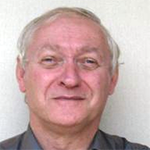 |
Magnetocalorics of frustrated Fe2P type-compounds. Two examples: MnRh1-xRuxAs with intricate fundamentals and Mn2-xFexP1-ySiy, for promising cooling applications By Prof. Daniel Fruchart Institut Néel, CNRS, Grenoble, France |
 |
CFD modeling of Active Magnetic Regenerator in magnetocaloric refrigeration: a comprehensive review By Prof. Sébastien Poncet Université de Sherbrooke, Canada. |
Special Session 5: Metal hydrides’ Energy
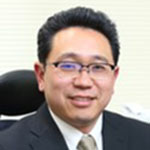 |
Metal hydrides for H2 storage, heat storage, and anode for Li-ion batteries By Prof. Takayuki Ichikawa Hiroshima University, Japan |
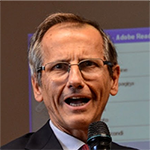 |
Metal Hydrides as Hydrogen Carriers By Prof. Marcello Baricco Department of Chemistry and NIS, University of Torino, Italy |
Special Session 6: Metal–halide perovskites the “wonder semiconducting material”
 |
Interface engineering through surface passivation and innovative charge selective layer development for perovskite solar cells Prof. Shahzada Ahmad BCMaterials-Basque center for materials, applications & nanostructures, Leioa, Spain |
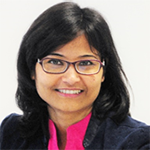 |
Rational Design of charge selective contacts for Metal Halide Perovskite Solar Cells Prof. Samrana Kazim BCMaterials-Basque center for materials, applications & nanostructures, Leioa, Spain |
 |
Interlayers in organic and perovskite solar cells: The impact on performance and device stability Dr. Morten Madsen University of Southern Denmark, Denmark |